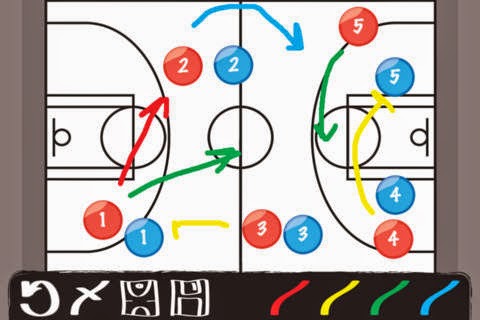You are an athlete and you love the game of basketball. However, as you walk down your school corridor on the way to math class, you contemplate hiding in a locker, or coming down with an illness which you will recover from when geometry class ends. Math can be difficult and frustrating, but as a basketball player, understanding numbers, and not only the ones on the back of jerseys, are key to understanding and mastering the game.
1st Quarter:
- Basketball hoops are 10 feet tall
- Professional and college courts sizes are 94 feet by 50 feet ( men and women)
- The basket is a steel rim 18 inches in diameter
- Professional and college backboards measure 6 feet by 3.5 feet
- The white outlined box on the backboard is 18 inches high and 2 feet wide
- Free throw lines are 15 feet from the basket
2nd Quarter:
Female
- A professional women’s basketball is 28.5 inches in circumference and weighs 20 ounces
- The three-point line is 22 feet 1 3/4 inches in the WNBA and 20 feet 9 inches in the NCAA
- Shot clocks range from 30 seconds to 24 seconds in college and professional play
Male
- A professional men’s basketball is 29.5 inches in circumference and weighs 22 ounces
- The three-point line in the NBA is 23 feet 9 inches and 20 feet 9 inches in the NCAA
- The NBA shot clock is 24 seconds and the NCAA shot clock is 35 seconds (way too long in my opinion!)
3rd Quarter:
Basketball Slang in Numbers
Are you a parent or a newcomer to the game of basketball and hear all of these numbers being tossed around in the crowd while you are watching your child play, and feel like you are the one in math class? Let me try and clear things up for you.
During play, a team is allowed to have 5 players active on the court, and each player has a position name and number. A point guard is referred to as a 1, a shooting guard is referred to as a 2, a small forward is referred to as a 3, a power forward is referred to as a 4, and a center is referred to as a 5. Don’t worry if your child is a 5, it does not mean he is no good, it just means he is tall!
Impress your child by asking them what position they play, and don’t be afraid to ask their coach, “Hey, why are you playing my child at the 3?”
Ever hear of the term, “And One” and try to figure out what it means? When a player drives to the basket, or takes a shot inside the 3 point line and scores, you will often hear the term, “And One.” It simply means that the player made a two point shot and has the opportunity to go to the free throw line and add one more point to total 3 points. Simply, two points, “And One.”
Please feel free to comment on your own basketball numerology slang as different phrases are imagined and used on playgrounds all across the world.
4th Quarter:
If you haven’t noticed by now, numbers and math play a large role in the game of basketball. On offense, think about angles and where you can you use the backboard for a smooth shot. On defense, remember how the court is designed and try and push the player with the ball against the sidelines and force them out of bounds. Where you are rebounding, pay attention to how the ball bounces off the rim and predict where it might land. The next time you feel bored in math class, remember how math is used to make the game of basketball function properly, and ponder how you can use it to your advantage.
Contributing writer Jasen Sousa for Premier Hoops is the author of a number of poetry and fiction books for young people. Jasen has an M.F.A. in Creative Writing and is a life-long participant and fan of the game of basketball.


No comments:
Post a Comment